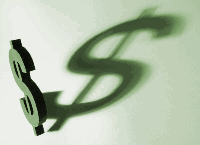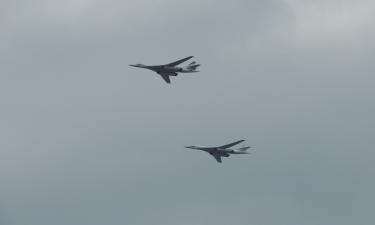Inflation pressures moderate on US economy in August
Consumer inflation slowed sharply last month as energy prices moderated, brightening prospects for future economic growth.

The Labor Department reported Friday that its closely watched Consumer Price Index posted a 0.2 percent increase in August, just half of the 0.4 percent rise seen in July.
The improvement reflected a big slowdown in energy costs, which edged up by just 0.3 percent in August after having surged by 2.9 percent in July.
Core inflation, which excludes the volatile energy and food sectors, matched the overall number with a moderate 0.2 percent increase in August.
Both the overall rise in inflation and the increase in core inflation were in line with analysts' expectations, providing support to their view that a slowing economy is beginning to dampen inflation pressures.
Federal Reserve policymakers meet next Wednesday and the central bank is widely expected to leave rates unchanged. The Fed passed up a chance to raise rates at its last meeting in August, breaking a string of 17 consecutive rate hikes.
However, the central bank has let it be known that if inflation pressures do not moderate, it is ready to raise rates further.
The new figures showed that core inflation over the past 12 months has risen by 2.8 percent, the biggest 12-month gain in nearly five years and far above the Fed's comfort zone of 1 percent to 2 percent price gains in core inflation. Still, optimists point to big declines in world energy prices in recent weeks as evidence that inflation pressures are beginning to moderate.
After hitting a record closing high above $77 per barrel in mid-July, crude oil prices have fallen by nearly 20 percent. And there was more good news on the energy front Wednesday when rising supplies pushed the price of natural gas down to the lowest level in two years.
Motorists are seeing a break in gasoline pump prices which climbed to record levels above $3 per gallon in early August but have now dropped to $2.62 per gallon, according to Energy Department surveys.
For August, the small 0.3 percent rise in overall energy costs reflected a tiny 0.2 percent increase in gasoline prices and a 0.7 percent rise in the cost of natural gas and a 0.1 percent drop in electricity charges. Analysts said there should be even greater moderation in energy inflation in next month's price report based on current trends.
The fall in energy prices is expected to provide a boost to consumer spending for the rest of the year, helping to lift overall growth prospects and lessen fears that the current economic slowdown could deepen into something worse.
Already, the pump relief is translating into rising consumer confidence, which surged to a seven-month high in early August, according to the latest RBC Cash Index.
For August, food prices showed an increase of 0.3 percent, after a gain of 0.2 percent in July. Beef, pork, poultry and vegetable prices were all up while fruit and dairy products posted price declines.
Outside of food and energy, the 0.2 percent increase in core inflation was the second consecutive month at this level after four months of more worrisome increases of 0.3 percent, the AP reports.
Clothing prices, which had posted a big decline in July, rose by 0.9 percent in August as the price of new fall lines offset heavy discounting by retailers to clear shelves of unsold summer clothes.
Airline fares, which had been rising sharply because of fuel costs, fell by 1.9 percent, the biggest drop since last December.
Subscribe to Pravda.Ru Telegram channel, Facebook, RSS!





